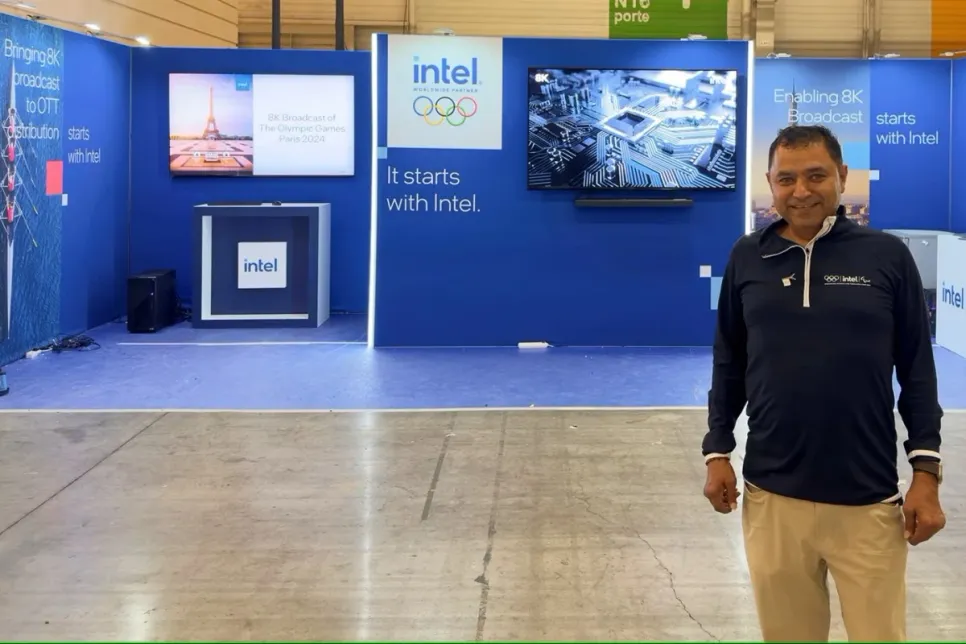OpenAI Unveils ChatGPT Search
OpenAI unveiled a ChatGPT Search model it stated provides more in-depth answers than other competitors.

At the Olympic Games Paris 2024, as the Official AI Platform Partner, Intel will introduce new AI experiences based on the company’s hardware and software. With its new solutions, the company will enable 8K streaming of the event.
Throughout the Olympic Games Paris 2024, AI-optimized broadcast servers will encode and compress Olympic Broadcasting Services (OBS)-produced 8K live signals that OBS will deliver to selected media rights holders across the open internet. The servers are powered by the latest 4th and 5th Gen Xeon processors with Intel AI accelerator (AMX), and Deep Learning Boost technology.
Compressing that data and decoding it on the other side of the world is by no means a simple feat. Intel is compressing live raw feeds measuring 48 gigabits per second (Gbps) into a VVC-enabled livestream measuring 40 to 60 megabits per second (Mbps) – a compression ratio of 1,000 times – in under 400 milliseconds. That 8K over-the-top (OTT) broadcast will then be delivered by OBS around the world to 8K TVs connected to the latest Intel-enabled PCs.
Partnering with OBS, broadcasters, and technology providers, Intel has powered OBS to livestream 416 hours of live and recorded Olympic Games content and processed 4.7 petabytes of data at the Olympic Games Tokyo 2020. That industry partnership deepened at the Olympic Winter Games Beijing 2022 where Intel made available to OBS and global broadcasters the world’s first fully produced 8K virtual reality feed.
“Our goal at the Olympic Games Paris 2024 is a step closer toward making 8K mainstream, and to deliver live 8K streaming using advanced h.266/VVC encoding technologies that reach the highest quality at the lowest bitrate possible around the globe,” said Ravindra (Ravi) Velhal, global content technology strategist and 8K lead in the Software and Advanced Technology Group at Intel.
Olympic Games Paris 2024, explains Ravi, will be the world’s first live demonstration of an end-to-end 8K VVC live-streaming experience utilizing Intel’s 5th Gen Xeon CPUs to encode and Intel-based client CPUs and Arc GPUs to decode. It provides a pathway for the future of low-latency, broadcast-grade 8K live streaming over the internet.
The process of getting 8K live content from the Olympic Games stadium in Paris to an 8K-enabled TV on the other side of the planet is highly complex. It’s enabled by a constellation of Intel hardware and software technologies. The steps to accomplish the 8K broadcasts include broadcast-grade cameras in select Olympic Games venues that capture live content in 8K at 60 frames per second in high definition (HDR) at 48 Gbps bitrate mixed with 32 audio channels.
Next is a purpose-built “broadcast in a box” encoder powered by the 5th Gen Xeon CPUs processes that raw content in less than 400 milliseconds and distributes it across the internet within seconds. Around the world, Core i9 processor-based PCs with Arc graphics processing units and Core Ultra 9 processor-based laptops decode the OBS content in real-time before displaying the video feed on an 8K TV protected by Intel’s high-bandwidth digital content protection technology.
During the Olympic Games Paris 2024, Ravi and his team will work on several events acquiring, processing, and streaming petabytes of data. It’s a job suited for a collection of advanced Intel-based AI platform technologies like Advanced Matrix Extensions (AMX) AI accelerators and Deep Learning Boost (DL Boost) that enable complex AI workloads to run without increasing the overall computing footprint.
“We leverage these technologies in our Xeon CPUs to analyze each scene, frame by frame, and to train our algorithms to process fast-moving data without compromising on latency and quality,” said Ravi, adding that the overall latency from camera to TV is just a few seconds, a figure unachievable in the past. “Together with our industry and technology partners, we are solving the world’s biggest distribution roadblock that stands in the way of 8K live broadcasts. Paris 2024 proves that the future of low-latency, high-definition 8K live-streaming is here.”